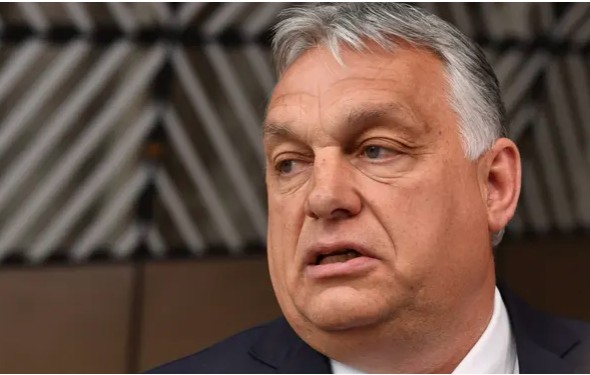The EU may deprive Hungary of voting rights if Orban vetoes ˆ50 billion in aid to Ukraine again
According to Article 7 of the EU Treaty, this can be done if a member state does not adhere to its values

Hungarian Prime Minister Viktor Orban, as you know, vetoed the allocation of €50 billion to Ukraine in 2024-2027 at the EU leaders' summit in late December.
However, in the next vote, the EU will not succumb to the provocation, Politico writes. Orban's proposal to divide the amount of aid into four parts and consider the allocation of money annually with the possibility of blocking it was not approved.
"It is extremely unlikely that countries will support a decision that gives Hungary the ability to blackmail them on a regular basis," the EU diplomat said.
Although no concrete agreements have been reached, the EU is now confident that it will be able to agree on the allocation of money to Kyiv before the February 1 summit, diplomats and officials told Politico.
According to one of them, "the December summit was a cold shower" for EU leaders: "Some of them realized what Orban is willing to do."
The sense of optimism about the outcome of the talks is based, among other things, on the fact that Brussels believes that Orban has exhausted his blackmailing capabilities and is in a deadlock, Politico writes.
Decisions on key issues in the EU are made unanimously. But, according to the two diplomats, if Orban vetoes the allocation of money to Ukraine for the second time, a number of EU countries will call for Hungary's voting rights in the European Council to be temporarily suspended.
According to Article 7 of the Treaty on European Union, this can be done if a member state does not adhere to its values.
Last week, 120 members of the European Parliament from different parties signed a petition calling for Hungary's voting rights to be revoked.
Orban has consistently violated EU values by undermining democratic institutions since he came to power in 2010, they argue. That is why the European Commission blocked the allocation of 30 billion euros from the EU budget to Budapest, and Orban hoped to receive this money in exchange for a solution to Ukraine.
Background. Orban reportedly found an ally in the EU against the allocation of financial aid to Ukraine.
If you have read this article to the end, we hope that means it was useful for you.
We work to ensure that our journalistic and analytical work is of high quality, and we strive to perform it as competently as possible. This also requires financial independence. Support us for only UAH 196 per month.
Become a Mind subscriber for just USD 5 per month and support the development of independent business journalism!
You can unsubscribe at any time in your LIQPAY account or by sending us an email: [email protected]



